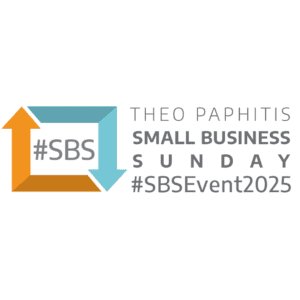Since the pandemic began in 2020 we have spent more time online than ever before. Lockdowns meant that people worked remotely, shopped online and even socialised from our homes. Two years on and many of us are continuing to work, live and socialise remotely despite the restrictions being lifted.
But spending more time online means your risk of falling victim to a cyber-attack grows. Online security is something that many of us don’t consider or take for granted. However, if you are successfully ‘phished’ or hacked, you could be in for a rocky ride. If hackers gain access to your device or profiles, they could access your money, personal data or even ruin your business and that is where our services here at Black Nova can help!
Despite being experienced designers and developers in WordPress web design and hosting we also provide Network, Wi-Fi and CCTV services. Whether it be an entirely new installation or a system upgrade, we want to help you. In 2020 we gained our Cyber Essentials accreditation which is a Government-backed scheme that recognises businesses with up to date and effective cyber security practices. Meaning that we can support business like ours and yours with online security. We’ve put together seven steps you can take to stay safe online this year and here’s what they said:
1. Have a separate password for your email account
Think of your email account a bit like a secure safe, with all your most important information hidden in it. You need to secure it with a strong password that’s totally different from any others you use. If a hacker or criminal gained access to your emails they could change your passwords for other key apps and accounts. So, choose a strong password and change it regularly.
2. Back up your data
We talked to Black Nova Designs about data backups and why they are important here, but they are relevant to cyber security too. If you were unfortunate enough to be hacked, you know there’s a recent version of all your data somewhere safe. You can then use that if the worst were to happen and someone stole your data. With most operating systems you can turn on automatic updates to the cloud, so you don’t have to worry about remembering to do it.
3. Create different passwords for all your apps and accounts
Even the biggest businesses can suffer data breaches so your passwords for all different accounts should be different. That means social media, online shopping, banking, utilities and subscriptions – everything. That means if you are unlucky enough to be hacked, they won’t suddenly be able to access lots of different types of your personal information. Here’s a tip for creating a strong password. Combine three random short words together using letters, numbers and capital letters.
4. Turn on two-factor authentication where possible
What is two-factor authentication, you might ask! It’s where an account asks for a passcode and a pin, or a password and a biometric input such as a thumbprint! You might have that already for internet banking. But did you know that you can set up two-factor authentication for lots of other sites including Gmail, Facebook and Instagram? Check their help pages for instructions for how to set it up. It’s well worth doing if your business relies totally on your emails or on leads coming in from social media!
5. Use a dedicated password manager
We mentioned having a different password for all accounts, but that can present a problem when you need to remember them. It’s why so many people use the same password for nearly everything. Top tip – use a password manager like https://www.lastpass.com. They allow you to save all your passwords in one easy to use place – just make sure you use a strong and secure password for that! Other people save their passwords to their browser which automatically fills them in. If you do that, it’s essential to have a strong password for the device itself. Otherwise, if someone stole your laptop, they could log anything they like without even needing to hack your password.
6. Update your devices
Dare you guilty of ignoring your computer when it asks to install an update for software, apps and operating systems? If so, then you’re making your information easier for someone else to hack! Companies and app developers fix weaknesses in their code by releasing updates to help keep hackers out. They also help programmes run as they should. Turn on automatic updates for everything you can, so you don’t have to remember. And please, please don’t ignore the manual updates as they will keep you safe online.
7. Watch out for phishing emails
Phishing emails and text messages are when cyber criminals contact you pretending to be a person or an organisation you can trust. They look like a real email or text but always have a link or attachment in them. The aim of a phishing email or text is normally to get you to click that link to a website or download an attachment. Both of these actions could risk a virus or other malware on your device, allowing criminals to access passwords and other private data. Be very careful with emails from unknown people or organisations. Also, be wary of emails which appear to be from big brands, but that look strange and/or contain spelling errors. If you get a phishing email, then you can send it here – report@phishing.gov.uk. Suspicious text messages can be forwarded to 7726 (for free!) free-of-charge which enables your provider to investigate the origin of the text.
What to do next…
It is so important to take the time to run through these steps, whether you have an online business or not. We will be relying on the internet for as far as the future goes, so it really is important. If you would like to add an extra layer of protection, why not explore our anti-virus services? We are an authorised ESET reseller – https://www.eset.com/au/ – which means that we can offer you total peace of mind when protecting your devices and networks. Using ESET Endpoint Protection is incredibly cost-effective as it is a cloud-based software. Take a look here: https://www.blacknovadesigns.co.uk/anti-virus/



